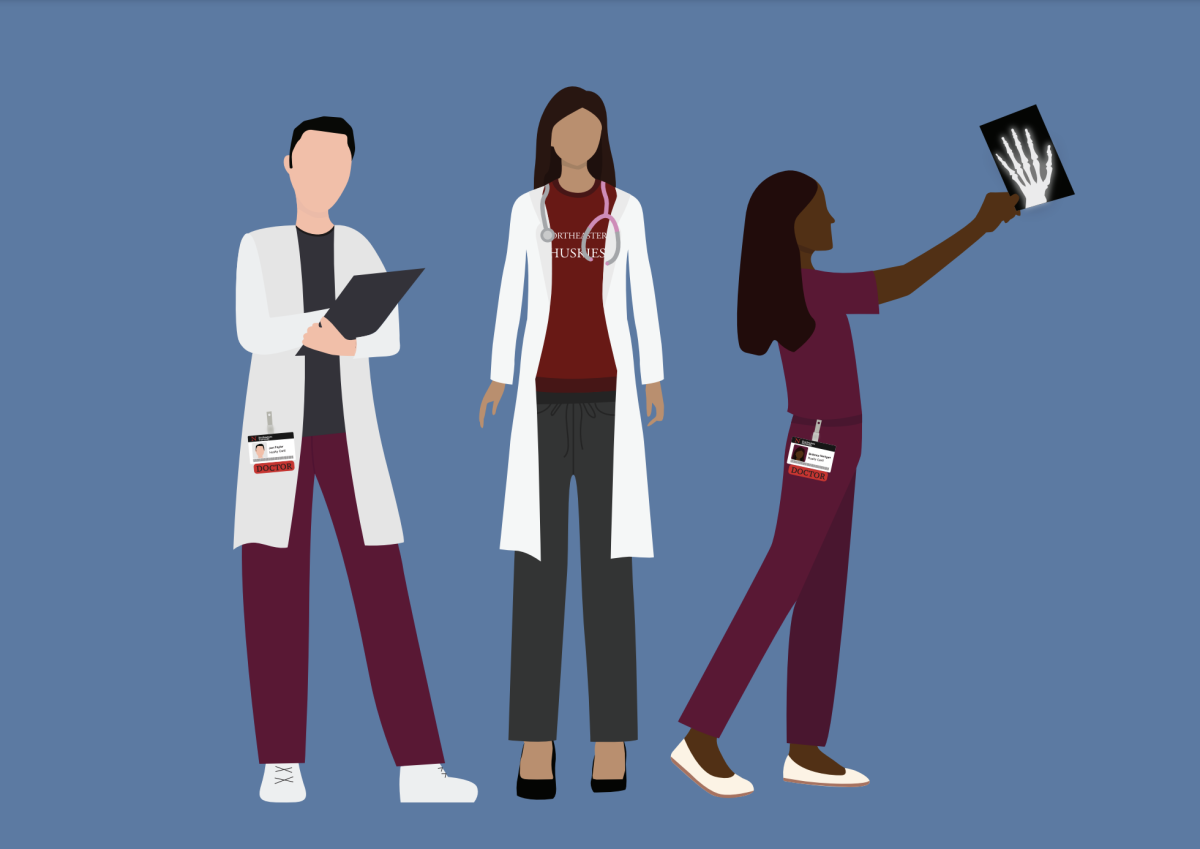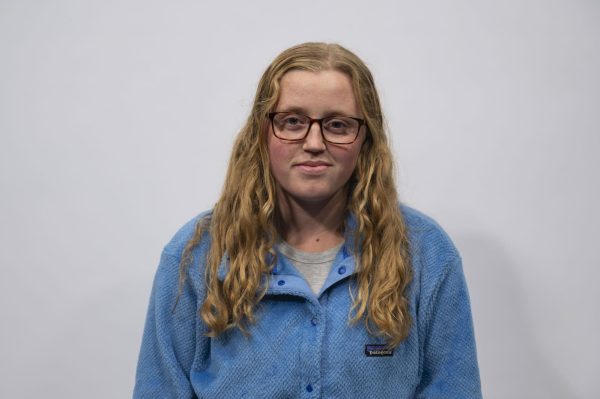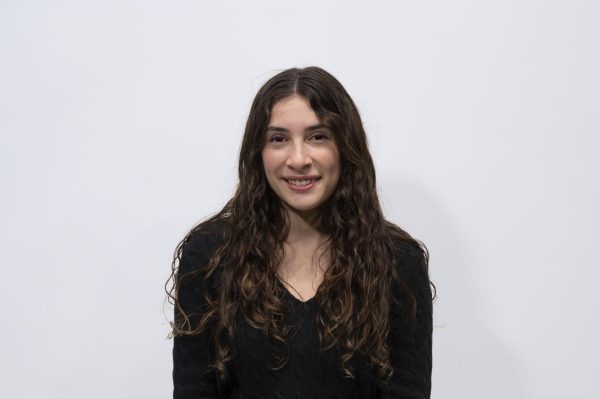Boston, widely regarded as a world-class healthcare hub, is home to 25 hospitals that serve as training grounds for the next generation of healthcare professionals. Through Northeastern’s co-op program, pre-med and pre-health students gain real-world experience in hospitals, often years before they begin practicing in their chosen fields.
These students are not just learners — they are an integral part of the healthcare workforce in Boston.
Luke Egan, a second-year behavioral neuroscience major, is currently on co-op as a medical assistant in the urology surgery department at Brigham and Women’s Hospital. He described his experience as “invaluable” and incredibly hands-on.
“I get to be involved in a lot of procedures, which is really nice,” Egan said. “It allows me to learn techniques and work closely with providers every day.”
Egan’s clinical exposure extends beyond his co-op, and he had previously participated in clinical research and volunteered at Brigham and Women’s Hospital. However, it is his current role that has provided him with an in-depth look into the healthcare environment.
“One thing I didn’t expect was the work dynamic in a hospital,” Egan said. “It’s less formal than I imagined, not like a desk job. You have to get used to a new kind of professional interaction.”
Olivia Kiefer, a second-year psychology major on the pre-med track, is currently a mental health associate at Beth Israel Deaconess Medical Center. In this role, she works closely with psychiatric patients, assisting with daily tasks, taking vital signs and collaborating with the healthcare team.
“It’s my favorite job [that] I’ve had,” Kiefer said. “We sit in on [the] doctor’s meetings where the whole care team discusses patient treatment, and I’ve learned so much from it.”
Kiefer said one obstacle of her job is the emotional toll and long hours.
“It’s mentally taxing when patients are constantly asking for things, and you’re juggling multiple tasks,” Kiefer said. “It can be overwhelming.”
Despite the challenges, she believes that young professionals bring unique perspectives to healthcare.
“We work with a lot of patients who are college-aged,” Kiefer said. “Being closer to their age helps us connect with them in a way older staff members might not.”
Amelia Fargnoli, a third-year health science major, completed a co-op at Massachusetts General Hospital as a medical assistant in the Oncology/Arthroplasty Orthopedic Surgery Department. The experience was pivotal in helping her choose between a career as a physician assistant or a doctor.
“I worked closely with both doctors and [physician assistants], and seeing their day-to-day roles helped me decide my path,” said Fargnoli, who ultimately chose the pre-med track.
She believes that Northeastern’s co-op program provides an edge over traditional pre-med tracks.
“It’s six months of full-time experience,” she said. “You learn about the challenges of healthcare, social determinants of health and patient care in a way that you just can’t get from shadowing or internships.”
For Fargnoli, her co-op reaffirmed her desire to work in healthcare.
“The doctors I worked with had long, hard shifts, but they were still passionate and made a huge impact on their patients’ lives. That was inspiring to see,” she said.
The adaptability and fresh perspectives of healthcare co-ops are shaping the future of healthcare. And for many, their co-op experience is not just a stepping stone — it is confirmation that they are on the right path.
“At the end of the day, you know you made a difference in someone’s life,” Kiefer said. “And that’s what makes it all worth it.”












